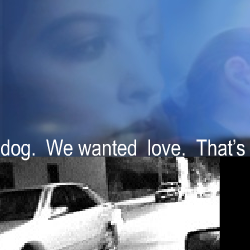As Howard Rheingold notes, “a participatory culture in which most of the population see themselves as creators as well as consumers of culture is far more likely to generate freedom and wealth for more people than one in which a small portion of the population produces culture that the majority passively consume.”
Although not on our formal reading list for this week, if you have the time, I'm sure you'll find this relatively recent article on Howard Rheingold interesting:
Howard Rheingold is truly a digital elder, and I mean that in the most respectful, old-school way. All of the fetishizing of the “digital native” can distract us from the wisdom of those who experienced and shaped the birth of internet culture, and Rheingold was right there, in time and in space. His new TED Book, Mind Amplifier: Can Our Digital Tools Make Us Smarter? traces the history of mental augmentation in its social, cognitive and technological forms.
The article is written by
*********************
★according to recent studies by the Pew Center on the Internet and American Life, more than half of American teens online have produced media content and about a third have circulated media that they have produced beyond their immediate friends and family.
★growing importance of participatory culture in the everyday lives of young people. Work across a range of disciplines suggest that these emerging forms of participatory culture are important sites for informal learning and may be the crucible out of which new conceptions of civic engagement are emerging.
★the next techno-cultural shift according to Rheingold
★collective intelligence
Part of this participatory literacy (which I would include as an element of transliteracy) are new skills or existing skills that we must refine for the online arena:
Play — the capacity to experiment with one’s surroundings as a form of problem-solving
Performance — the ability to adopt alternative identities for the purpose of improvisation and discovery
Simulation — the ability to interpret and construct dynamic models of real-world processes
Appropriation — the ability to meaningfully sample and remix media content
Multitasking — the ability to scan one’s environment and shift focus as needed to salient details.
Distributed Cognition — the ability to interact meaningfully with tools that expand mental capacities
Collective Intelligence — the ability to pool knowledge and compare notes with others toward a common goal
Judgment — the ability to evaluate the reliability and credibility of different information sources
Transmedia Navigation — the ability to follow the flow of stories and information across multiple modalities
Networking — the ability to search for, synthesize, and disseminate information
Negotiation — the ability to travel across diverse communities, discerning and respecting multiple perspectives, and grasping and following alternative norms.













